Plastic bottles topped the list of most common marine waste in Taiwan for the fifth consecutive year, the Ministry of Environment has said.
The ministry on Tuesday last week released its latest report on the maintenance and management of the coastal environment, which analyzed the composition of the nation’s marine waste based on the investigation results of International Coastal Cleanup, the largest volunteer effort to clean up the world’s beaches and waterways, from the first to third quarter of last year.
The report showed that 29.8 percent of marine waste was plastic bottles, which topped the list for five years in a row.
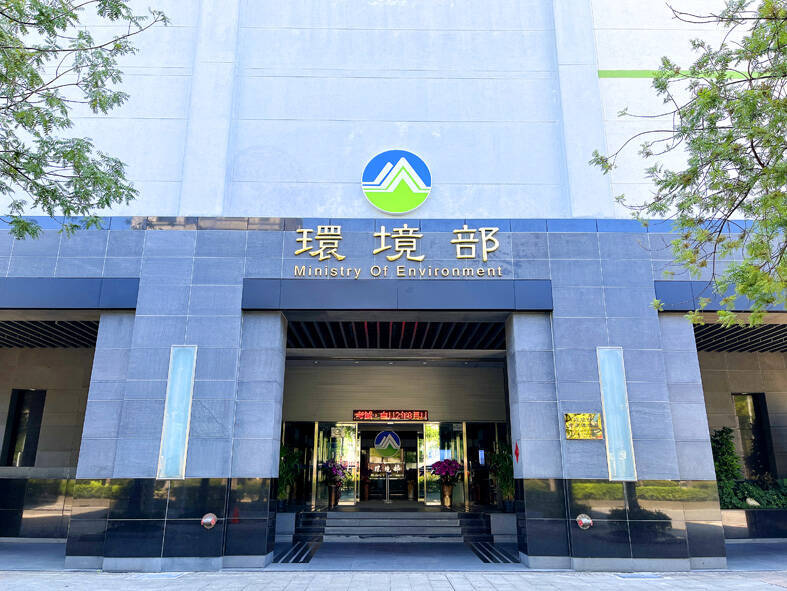
Photo: Chen Chia-yi, Taipei Times
The second most common marine waste was plastic bottle caps, accounting for 12.8 percent, followed by glass bottles at 10.2 percent, cigarette butts at 7.5 percent, and plastic straws at 4.5 percent, it said, adding that cigarette butts ranked among the top five for the first time.
The ministry cited a report from the Ocean Conservancy that compared Taiwan’s coastal waste to global marine litter.
Plastic bottles from Taiwan made up about 3 percent of the world’s plastic bottle marine waste, while plastic bottle caps were 2.8 percent of the world’s and plastic straws were 1.9 percent, it said.
The proportions of the three items to total marine waste in Taiwan were big compared with the world average of 1.2 percent, the report added.
A plastic reduction subsidy scheme would be launched next year to incentivize the hospitality industry to cut down bottled water use, the ministry’s Resource Circulation Administration Director Lai Ying-ying (賴瑩瑩) said yesterday.
Hotel operators could apply for a subsidy to implement plastic-reduction measures, Lai said, adding that they should not provide plastic-bottled water in at least half of their rooms.
The government would also subsidize the installation of refilling systems for glass-bottled water to facilitate the recycling, cleanup and refilling of glass bottles for the industry, she said.
To reduce bottle cap waste and encourage green product designs, a preferential subsidy on recycling and disposal would be given to bottled water manufacturers who use caps attached to bottles, she said.
Event organizers are advised to use reusable cups to reduce litter from plastic bottles and caps, she added.
Environmental Management Administration Director-General Yen Hsu-ming (顏旭明) yesterday said the government would clamp down on littered cigarette butts.
Cigarette butts as maritime waste do not necessarily come from coastal areas, he said, adding that a big part of such marine waste is caused by people who discard cigarette butts on roads or into drainages.
When it rains, cigarette butts would flow into the sewer system and finally into the ocean, he added.
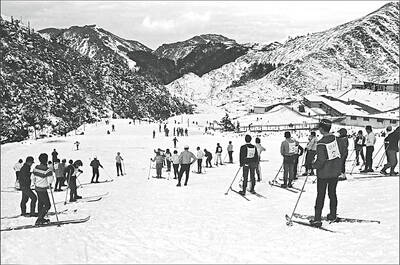
A strong continental cold air mass and abundant moisture bringing snow to mountains 3,000m and higher over the past few days are a reminder that more than 60 years ago Taiwan had an outdoor ski resort that gradually disappeared in part due to climate change. On Oct. 24, 2021, the National Development Council posted a series of photographs on Facebook recounting the days when Taiwan had a ski resort on Hehuanshan (合歡山) in Nantou County. More than 60 years ago, when developing a branch of the Central Cross-Island Highway, the government discovered that Hehuanshan, with an elevation of more than 3,100m,
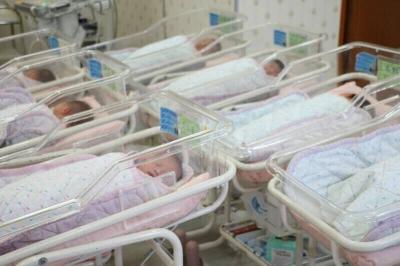
Taiwan’s population last year shrank further and births continued to decline to a yearly low, the Ministry of the Interior announced today. The ministry published the 2024 population demographics statistics, highlighting record lows in births and bringing attention to Taiwan’s aging population. The nation’s population last year stood at 23,400,220, a decrease of 20,222 individuals compared to 2023. Last year, there were 134,856 births, representing a crude birth rate of 5.76 per 1,000 people, a slight decline from 2023’s 135,571 births and 5.81 crude birth rate. This decrease of 715 births resulted in a new record low per the ministry’s data. Since 2016, which saw
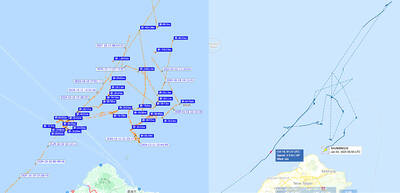
SECURITY: To protect the nation’s Internet cables, the navy should use buoys marking waters within 50m of them as a restricted zone, a former navy squadron commander said A Chinese cargo ship repeatedly intruded into Taiwan’s contiguous and sovereign waters for three months before allegedly damaging an undersea Internet cable off Kaohsiung, a Liberty Times (sister paper of the Taipei Times) investigation revealed. Using publicly available information, the Liberty Times was able to reconstruct the Shunxing-39’s movements near Taiwan since Double Ten National Day last year. Taiwanese officials did not respond to the freighter’s intrusions until Friday last week, when the ship, registered in Cameroon and Tanzania, turned off its automatic identification system shortly before damage was inflicted to a key cable linking Taiwan to the rest of
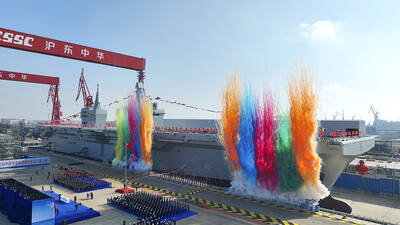
China’s newest Type-076 amphibious assault ship has two strengths and weaknesses, wrote a Taiwanese defense expert, adding that further observations of its capabilities are warranted. Jiang Hsin-biao (江炘杓), an assistant researcher at the National Defense and Security Research, made the comments in a report recently published by the institute about the Chinese Communist Party’s (CCP) military and political development. China christened its new assault ship Sichuan in a ceremony on Dec. 27 last year at Shanghai’s Hudong Shipyard, China’s Xinhua news agency reported. “The vessel, described as the world’s largest amphibious assault ship by the [US think tank] Center for Strategic and International